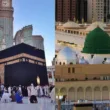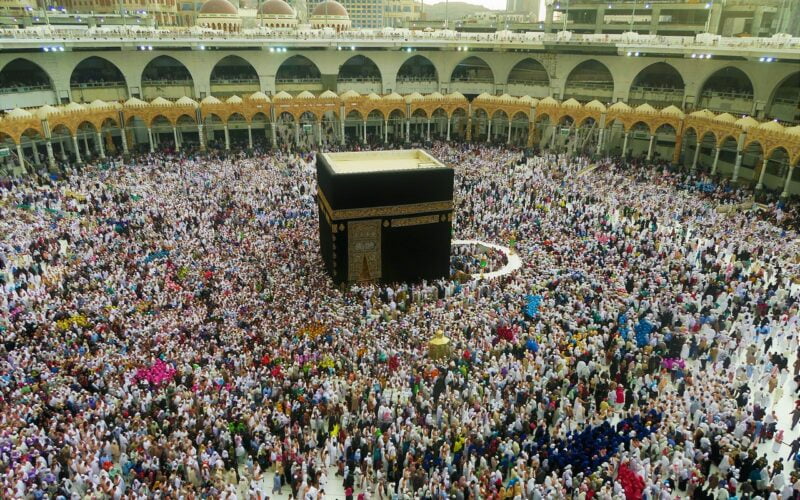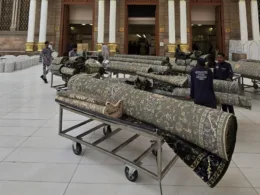In recent years, we have witnessed that the Saudi Arabian government has carried out the Ghusl Kaabah ceremony, or the washing ceremony of the Ka’bah, only once a year.
The washing uses Zamzam water mixed with rose water, Oud, and Itar (fragrance). Zamzam water mixed with a rose will be splashed onto the floor and then wiped with bare hands and palm leaves to mop the floor.
While the interior walls are cleaned with a white cloth dipped in rose and musk perfume. Then the towel is used to wipe the walls of the Ka’bah.
The washing ceremony of the Ka’bah, a tradition that dates back to the time of the Prophet Muhammad SAW, is usually carried out twice a year. The first of these ceremonies is typically performed at the beginning of the Islamic year, in the month of Muharram; the second is generally carried out on the 1st of Shaban, the eighth month in the Islamic calendar.
However, in the last few years, the washing ceremony of the Kaaba has only been carried out once a year. The Saudi authorities took the decision for several reasons. One of the biggest reasons is logistical and practical reasons, where the authorities are known to have difficulty organizing events amidst the crowds of Ka’bah visitors and the logistics of holding the ceremony twice a year.
Meanwhile, in 2020, the washing of the Kaaba was carried out only once a year due to the outbreak of the Covid-19 pandemic, which hit the world, including Saudi Arabia. The last time the Ghusl Ka’bah ceremony was held twice a year was in 2014.
Although the washing ceremony of the Ka’bah underwent changes, it remains an important event for the Islamic Ummah.
The ceremony, which is usually broadcast live on television and watched by millions around the world, is seen as a symbol of the unity of the Muslim community and a reminder of the importance of spiritual purity.
Washing the Ka’bah is a sunnah of the Prophet Muhammad. When entering the Kaaba during the conquest of Makkah, the Prophet SAW washed the structure and cleaned it of idols. The caliph then followed the custom to this day.
However, setting the date of washing twice a year began during the time of King Abdulaziz: the first king and the founder of modern Saudi Arabia.
Subscribe to our channels on WhatsApp, Google News, Facebook and Instagram.Discover more from The Islamic Information
Subscribe to get the latest posts sent to your email.












